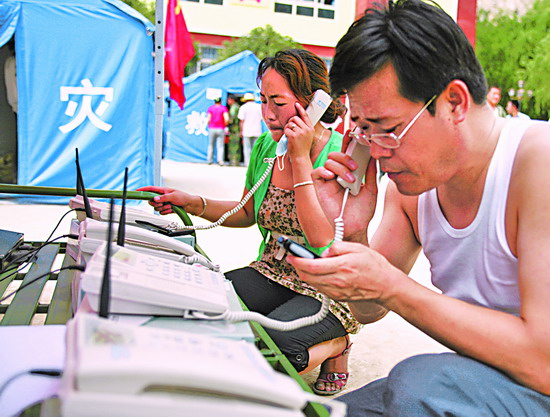Society
Victims tell world of their plight in Zhouqu
(China Daily)
Updated: 2010-08-11 07:57
 |
Large Medium Small |
|
|
BEIJING - Four hours after mudslides engulfed Zhouqu county early on Sunday morning, 19-year-old Kayne tweeted from his cell phone: "Flood. Blackout. People from the building all gathering by candlelight."
He posted another message at 9 am on Sunday: "My family has been evacuated to a safe location."
Since then, he has continued to update his micro-blog on t.sina.com.cn, a popular Chinese alternative to Twitter, with further messages and pictures from the scene.
His last tweet at 7 pm on Tuesday said dead bodies were continuously being pulled from the debris and that he always feels tired and helpless when night falls.
| ||||
"I'm fond of tweeting. When the mudslides suddenly came, I was hoping people outside would know what had happened and help us," said Kayne, a college student from Zhouqu.
In a series of recent disasters, including earthquakes in Wenchuan and Yushu, a number of Chinese Internet users like Kayne responded by sending messages from the disaster zones as soon as possible to inform others of their plight and to seek help.
Along with the Internet, people in Zhouqu have also been trying to contact members of their families outside the county through the free telephone services the local authorities made available on Monday.
When Feng Qingqing heard her husband's voice from afar on Monday, a smile broke across her face for the first time since the disaster struck three days ago.
After she related her conversation with her husband to her two children, Liu Hui, her 7-year-old daughter, said: "Papa is on his way to get us, thanks to the free telephone services." Liu's father is a migrant worker in Lanzhou, capital of Northwest China's Gansu province.
Her mother, her brother and little Liu were sleeping in their home in Zhouqu when landslides hit the county early on Sunday morning. No one in the family was hurt in the disaster, but all of their possessions have been buried in the mud.
China Daily - Xinhua




